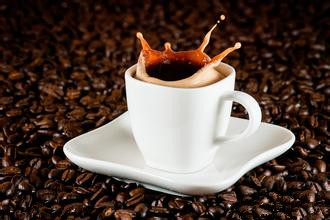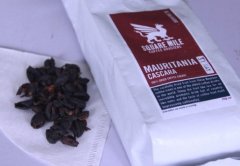Trace when coffee became a drink in people's lives.
All historians seem to agree that the birthplace of coffee is the Kaffa region of Ethiopia.

But the first people to plan to grow and eat coffee were Arabs, and the name coffee is thought to come from the Arabic "Qahwah", which means plant drink. The earliest Arab way to eat coffee was to chew the whole fruit (Coffee Cherry) to absorb its juice. They then mixed the ground coffee beans with animal fat as a physical supplement for long trips, and it was not until about 1000 AD that the green coffee beans were boiled in boiling water to make an aromatic drink. Three centuries later, the Arabs began to bake and grind coffee beans. Because drinking was strictly forbidden in the Koran, Arabs consumed a lot of coffee, so religion was actually a big factor in the popularity of coffee in the Arab world.
Coffee was gradually introduced into Europe through Venice and the port of Marseilles in the name of "Arabian wine". The custom of drinking coffee in Europe was gradually spread by Italian Venice merchants in doing business in the 17th century, and ─ Bottega del Caffe, the first coffee shop in Europe, appeared in Venice. Over the past 400 years, the drinking habit of coffee has not only spread from the West to the East, but has even become an unstoppable trend.
Starting from the first cup of mellow coffee, after two hundred years of time, in 1530, the world's first coffee shop was finally born in Damascus in the Middle East.
When coffee first arrived in Italy, conservative clerics called it "Satan's masterpiece" and suggested driving it out of Italy, so Pope Clemon VIII decided to taste it himself. When he took a sip of the devil's thick black serous from the warm cup, he could not help but say, "Let the coffee be washed into God's drink!"
According to ancient Arabic texts, in the 11th century, Muslim precepts forbade believers to drink, and it was popular in the Arab region to boil sun-dried coffee beans into soup and use them as stomach medicine. The believers found that the coffee juice had a refreshing effect, so they used it as an inspiring drink instead of alcohol, and spread the drink through believers to and from Arabia to Egypt, centering on Mecca, the Muslim holy land. And then to Syria, Iran, Turkey and other places. By the end of the 13th century, Arabs had learned to dry raw coffee beans, bake them, mash them with a mortar and pestle, and then boil them with water to get purer coffee.
Important Notice :
前街咖啡 FrontStreet Coffee has moved to new addredd:
FrontStreet Coffee Address: 315,Donghua East Road,GuangZhou
Tel:020 38364473
Related
- How did the Salvadoran coffee industry develop in Central America?
- What exactly does the golden cup extraction of coffee mean?
- The Origin of Coffee flower
- [2023 Starbucks World Earth Day] there are more meaningful things besides free Starbucks coffee!
- What kind of coffee is there in Spain? 9 Flavors of Spanish Coffee
- Aromatic African coffee| Kenya's coffee culture and historical production area
- Liberica Coffee Bean knowledge: the characteristics of Liberian Coffee beans of the three original species of Coffee beans
- The origin and formula of Spanish latte introduces the taste characteristics of Bombon coffee in Valencia, Spain.
- How to adjust the solution of over-extracted coffee
- What is the tasting period of coffee beans? What is the period of coffee and beans? How should coffee wake up and raise beans?



